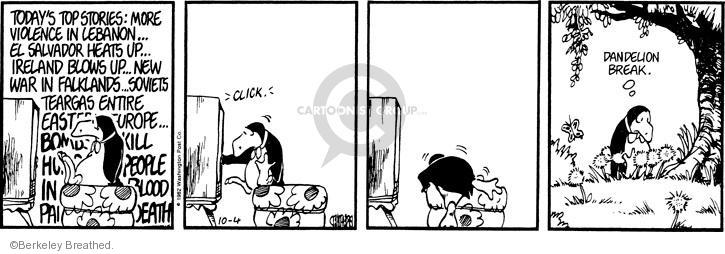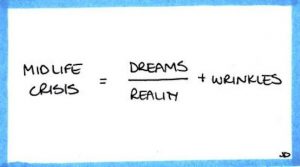I came across this quote on the ‘Humans of New York’ page. If you’ve not encountered it I’d recommend it. The picture and short quote – and that’s all it was – can be found here.
It sometimes feels a bit voyeuristic; you can’t help but wonder what goes through someone’s mind when they make such a short, but loaded comment.
Excuse today’s post – I’m in a bit of a funny place emotionally but want to keep my ‘Write for 30 minutes a day’ thing up. So today’s offering is a bit of a stream of consciousness one!
I do find that looking back is something that is likely to trigger strong – and not always helpful – emotions in me. I noticed this yesterday afternoon when a chance encounter with a zip-locked folder of old cards and letters and a box of my deceased cats’ playthings generated something of a blubbing attack for a short while. I wouldn’t say it depresses me, but it does make me more aware of what I miss from the past.
For me, it’s relationships; relationships of all types. It’s people I can no longer see and talk to because they’re dead. It’s folks who I screwed up with and I’ve lost contact with. It’s missed opportunities, broken and unfulfilled hopes. To be honest, I’m surprised that anyone can spend time wallowing in the past without having some sort of massive emotional reaction – or maybe that’s just me.
I don’t get depressed, but I get sad and probably a little angry with myself. Sometimes I do get the opportunity to patch things up – if I encounter something that is fixable, I’ll see what I can do to do it. And sometimes, I’ll come across something like a card or a clipped article or something and just grit my teeth, take a sharp intake of breath and bin it. Occasionally, there’s just no point in carrying excess broken baggage!
What’s really odd is when you come across a card or letter or such you’ve kept and can’t work out why; occasionally you can’t even remember the person whose name you’re looking at. I had that experience yesterday afternoon – I dug a bit deeper in the bag and found a card that ‘joined the dots’, so to say. I was grateful that I could still remember things when the context was supplied, and that I wasn’t peering at dementia to go with the dodgy knees!
You also get insights; I realised yesterday the frequency with which one particular name keeps showing up in my life. I’ve encountered people with this name 3 times – and each time it’s proven to be quite a formative relationship for me.
And you also realise that sometimes you’ve been a grade A1 c**t. And that is something that I’m definitely ashamed of. Places where I’ve buggered up relationships so badly, that there’s no way back. 4 of those; two of the people dead, two lost contact with. Of the latter, I’m still too cowardly to approach the people concerned – after 20 and 35 years it’s a long time.
The ‘Ziplock Bag of Fate’ is likely to be incarcerated in a biscuit tin soon to avoid future accidental viewings – sort of like an emotional Chernobyl Sarcophagous. I’ll know where it is, I’ll leave myself a note on the tin as to what’s in there, but only access it when I’m ready for the potential results – good and bad feels.
And thinking ahead? Oddly enough that doesn’t scare me as much as it once might have done; a lot may happen in the world that I can’t control, and of the stuff that I CAN control I’m probably better equipped to deal with it than I’ve ever been. There will be ups and downs; hard times and good times; good shit and bad shit. I’m not as afraid as I once would have been because I’ve learnt from the past that some of the things that upset me most are where I’ve ballsed up relationships or not been able to end relationships properly; I like to think that I’ve learnt well enough to at least keep on top of that side of things in the future.
And the rest of the future; well, I’ll just have to do what we all do – improvise, prepare the best I can, manage, and put the letters and cards in a labelled biscuit tin.




